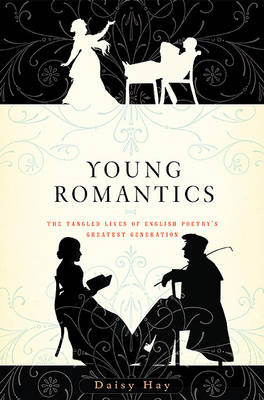Reviewed by Michael @ Knowledge Lost on
This is not necessarily a bad thing; Mary Shelley and Claire Clairmont were fascinating people, however this seems to be the primary focus of more biographies. I was a little surprised when Daisy Hay spends so little time on that fateful time in Geneva that birthed Frankenstein but I assume that she deliberately glossed over that story assuming everyone was aware of it anyway.
Young Romantics did something I didn’t expect and that was spending a lot of time talking about the Hunt brothers. I knew they played a big part in literature at the time and that in context to the Romantics it is relevant information. However I never viewed them as Romantics and often over looked learning about them. This is a mistake on my behalf; the role the Hunts played in the Romantic Movement is an essential part in dealing with context. I might not consider them Romantics but they were there shaping the literary world along side them.
Having discovered a new interest in non-fiction I find myself wanting to read more biographies. While I have a great interest in the Romantics, I found that Young Romantics works to create a basic understanding of their lives. You get a quick overview of the lives of the Shelleys and the Hunts. Unfortunately there isn’t much to do with Lord Byron and even less to do with the others. I would have loved to read more about Keats but he only got a brief look in.
I plan to read more biographies about a range of different authors but I’m sure there will be plenty on the Romantics. I like Young Romantics for the broad strokes approach it took on the Romantics. I learnt a lot from this book but I’m sure people with a great knowledge would have been a little disappointed with it. I think if you have a passing interest in the Romantics this might be the perfect choice.
This review originally appeared on my blog; http://literary-exploration.com/2014/05/21/young-romantics-by-daisy-hay/
Reading updates
- Started reading
- 1 May, 2014: Finished reading
- 1 May, 2014: Reviewed
